Whether you’re seeking motivation, inspiration or advice, this collection of blogging quotes will steer you in the right direction when it comes to blogging smarter this year.
And to guarantee that this list of blogging quotes is as actionable as possible (rather than overwhelming), I’ve arranged them into distinct sections spanning the entire blogging journey. So, read up on these quotes about blogging and start applying them into real action to help grow your blog today.
51 Blogging Quotes (From Top Bloggers) to Motivate Your Blogging in 2022
- Blogging Quotes Part 1: Getting Started (the Right Way)
- Blogging Quotes Part 2: Creating High Quality Content
- Blogging Quotes Part 3: Building Your Blog’s Audience
- Blogging Quotes Part 4: Monetizing Your Blog Readership
Disclosure: Please note that some of the links below are affiliate links and at no additional cost to you, I’ll earn a commission. Know that I only recommend products and services I’ve personally used and stand behind. When you use one of my affiliate links, the company compensates me, which helps me run this blog and keep all of my in-depth content free of charge for readers (like you).
Do you have a blogging quote to contribute? Jump down to the comments section at the end of this list of my favorite quotes about blogging and share your quote with us!
Blogging Quotes Part 1: Getting Started (the Right Way)
Now, let’s dive in with our first blogging quotes around getting started with your blog—on the right note.
1. “Your first blog posts won’t be perfect, but you just have to do it. You have to start somewhere.” – Shane Barker
Oftentimes, the first step is the hardest part. No one wants to publish anything bad, but we also can’t get better until we get started.
I can guarantee you that everyone on the list (myself included!) will all cringe when looking back at their first blog post. No one starts off with their best work and anyone who tells you otherwise is either lying or way too egotistical to be taken seriously.
Taking that first step can be hard, but what you’ll find is that the next one will be easier, as will the one after that, and the one after that. The main difference between the greats and everyone else is that the greats took that first step.
2. “Think in small, incremental steps that build momentum. If you start now, in two or three years from now, you might be in a really great place.” – Steli Efti, Close
Success is rarely, if ever, something that happens overnight. When building a blog, or any business for that matter, it’s important to remember that you won’t be generating thousands of views and site visits right off the bat and that it’ll take time and effort to build a successful blog.
Maintain a long-term vision of what you want with your blog and put in the hours needed every day to bring that vision to life. When you take a look back two or three years from now, you’ll be surprised at how far you’ve grown.
3. “I’m always reinventing my blog for the better.” – Ryan Robinson (that’s me! 👋)
One of the greatest things about blogging, is that there’s always something you can be doing better. The sky truly is the limit.
In the 8+ years, I’ve been working on my blog, I’ve never encountered something where I didn’t think, “This is good, but how can I get even better results?” Developing a mindset of perpetual learning and growth is also cited as one of the most impactful blogging tips I’ve heard from successful bloggers.
I’m always experimenting with my blog, from redesigning the look of my website, testing different email clients, or just looking for different ways I can make money blogging.
By adopting a willingness to constantly make my blog better, I’m able to always challenge myself to learn something new or to push myself to improve wherever I can.
4. “One of the best ways to sabotage content is to not tie it to your goals. Know why you’re creating content.” – Ellen Gomes, Glint
Before we dive into the various tricks and tactics you can be using to grow your blog, it’s important to know exactly why you’re starting a blog in the first place. Are you looking to build a personal brand? Get into affiliate marketing? Drive more traffic to your website?
Having a clear idea of what it is you want to achieve keeps you focused and ensures that you’re always moving in the right direction.
Your broad strategic goals will help you figure out what you’re going to write about, who your audience is, and how you’re going to get in front of them. Plus, knowing what your motivation is will keep you going when the going gets tough and the grind starts to set in. Pro tip: If you’re personally motivated to create content about the niche you’ve chosen (and toward the goals you have), then you’ll be able to write faster, more coherent content for your audience.
Take a page from Sean Ellis’s book and assign your blog a North Star Metric to follow, that is the one metric that best captures the core value of your business. For Facebook, their NSM was their number of daily active users, for WhatsApp it was the number of messages a user sent.
Once you figure out what your NSM is, you should be devoting all your effort into improving that one metric. For bloggers, especially those starting out, a good NSM to start off with is the number of subscribers you have to your blog.
5. “Read quality, all the time, every day. Then write. And make sure you’re writing something that – even just a little bit – is different from something anybody else has ever written. Or you say something in a different way.” – James Altucher, JamesAltucher.com
It’s a long-held belief that all great writers start off as great readers, and the same goes for blogging. To create a great blog, you need to read great blogs and, lucky for you, you’re already on the right track by reading this post here!
Reading other blogs will give you a better sense of what goes into making a successful blog and what kind of content your audience will enjoy the most. Plus, more often than not, you’ll find yourself getting inspired with new ideas and concepts that you wouldn’t have come up with otherwise.
6. “Experience comes from actually doing something, and you can’t gain experience until you do. Qualifications don’t really matter. Nobody cares.” – Jeff Haden, Inc Magazine’s #1 Contributor
You don’t need a degree or some qualification to be a successful blogger. Sure, it might help. But to believe that you need one to be successful is pure lunacy.
What your audience cares about, what most people care about in general, is whether or not something is good. If your content is good and provides value to people then no one will care about the credentials you may or may not have.
In order to be a better blogger you just need to blog more. There really is no other way around it.
7. “Before you do anything else, before you give your time to somebody else and their dreams that they’re building—give it to yourself first.” – Pat Flynn, Smart Passive Income
While there is no shortage of blogging tools out there that you can be investing in, the best way to grow your blog is to invest in yourself.
When everything begins and ends with you, it’s essential that you’re taking care of yourself first. There’s no way you can produce quality content if you’re burnt out and exhausted or if you’re finding yourself with too little time to work on your blog.
Don’t fall into the planning fallacy trap where you simultaneously underestimate how much time you have to complete a project and overestimate how much energy you actually have. It is physically impossible for you to be at 100% productivity in every waking moment.
Give your blog the best possible chance of success by first making sure you have the time, energy and space to build a successful blog.
8. “I generally blog between 5:30 A.M. and 7 A.M. I will from time to time add something during the day, but for the most part blogging is an early morning activity for me.” – Fred Wilson, AVC
Make sure that you set aside time that’s dedicated to just blogging.
I’ve found that it helps to create a work schedule based on your natural body rhythms. For example, if you’re naturally a morning person then, like Fred, you can set aside time in the morning to get the majority of your work done.
I’m a big proponent of developing a sustainable set of systems and habits to make sure that sets you up for long-term success.
Working 100+ hours a week might get you very far in the short-term, but you’ll quickly break down and find yourself grinding to a halt. Whereas devoting a few hours a day to your blog is far more sustainable and you’ll achieve much better results in the long-run.
9. “Fear of the unknown isn’t what you should focus on. Think more about the benefits of connecting with your audience and it’ll be worth the discomfort.” – Mariah Coz, MariahCoz.com
It’s easy to focus on the negative over the positive after all our brains are hardwired to do so.
But when you take a step back and really think about it, there are so much more positives than there are negatives to starting your own blog. All you have to do is take a look at the statistics around blogging!
On a business level, blogging gives you the ability to connect with your audience in a much more meaningful and impactful way. Time and time again we’ve seen how a high-quality blog can be extremely powerful in not only driving traffic, leads and sales for a business, but in helping a brand further develop that all-important sense of know, like and trust with their audience.
10. “Blogging is good for your career. A well-executed blog sets you apart as an expert in your field.” – Penelope Trunk, PenelopeTrunk.com
On a personal level, getting into the habit of blogging regularly can have an incredibly powerful impact on your career.
Even if you’re not looking to make money from your blog, by consistently publishing high-quality and valuable content you naturally set yourself apart as an expert and authority. For anyone looking to establish their personal brand, blogging is a wonderful way to demonstrate your personality, your expertise and your level of influence.
Even more, blogging has a way of helping you expand your personal and professional network. Instead of reaching out to people, with a high-quality blog you can make the right people come to you.
By the sheer virtue of having your own blog, you’re already setting yourself apart from the millions of people out there who don’t have one.
Blogging Quotes Part 2: Creating High Quality Content
Now, we’re going to transition into my picks for the best blogging quotes that are geared around writing the most useful, transformational content you’re capable of creating for your readers.
If you can create content that does the best job of building meaningful relationships with the readers in your niche—then there’s nothing you can’t accomplish.
11. “The first thing you learn when you’re blogging is that people are one click away from leaving you. So you’ve got to get to the point, you can’t waste people’s time, you’ve got to give them some value for their limited attention span.” – Alex Tabarrok, Marginal Revolution University
According to a recent study by Microsoft, the average human attention span has dropped to 8 seconds. That means, to create a successful blog post, you need to know how to hook your readers within the first 8 seconds or risk losing them forever.
A writing structure that journalists like to use is the inverted pyramid model. Basically, the idea of the inverted pyramid model is to put the most important information at the start of your article and finishing off with the least important information.
By using the inverted pyramid model, you can ensure that you’re immediately providing value to your audience, which then entices them to continue reading.
12. “Look at your blog like a product or a brand. What’s going to make your blog different from what’s already out there?” – Brian Dean, Backlinko
When it comes to creating quality content, one of the first things you have to figure out is how your content is different from the millions of other blogs out there.
This is when making a habit of reading other blogs comes in handy because you’ll naturally develop a sense of what other people are talking about and how you can set yourself apart from them.
Anytime you write anything, it helps to take a step back and think about what it is that makes your piece unique. Is it because it’s more in-depth and well-researched? Are you addressing specific pain points than no one else is? Do you have an opinion that can be considered controversial?
Remember that no one wants to read a copy of another, more successful, blog. What makes you different will be what draws people in in the first place.
13. “Figure out what it is that you stand for, what message you want to share, what you want your story to be. Make sure it’s authentic – and then go for it.” – Gaby Dalkin, What’s Gaby Cooking
One of the key reasons why people love to read blogs is the authenticity factor. Unlike traditional media, blogging gives you the power to be more personal and empathetic with your writing. Readers feel like they’re able to connect with bloggers in a way that’s impossible with news sites or business blogs.
Who you are, from your story to your personality, is just as valuable to your audience as the topic you’re writing about.
Writing authentically not only makes your content more credible, but it also allows you to further develop the sense of know, like and trust with your reader.
14. “I think a lot of people believe they don’t have anything to write about or to add value on, but if you’re good at something and you’ve had success at something, just think more about that—and write everything out.” – Austin Belcak, Cultivated Culture
It can be easy to believe that you have nothing to write about, or that someone else has already covered it better before. But what you’re forgetting is that you are already unique. Your experiences are already one-of-a-kind and you can easily set yourself apart by writing about them.
You don’t need to be the one-and-only expert in your niche. But you do need to be the only person that can do what you do.
Whenever you find yourself with writer’s block and unsure on how to best add value. It helps to get introspective and think about what it is you would like to learn more about, what kind of information do you wish was more available, and how does this topic affect you on a personal level.
Just start writing and I guarantee that you’ll find something that only you can speak about.
15. “Value doesn’t come from feeding your audience with free tips that everyone else is already saying. You provide value when you’re able to inspire a commitment to change. You add to the content literature in your niche when you have a distinctive point of view. This is also how you build content authority.” – Meera Kothand
Always be thinking about your audience and the kind of value that you’re providing them. If your audience isn’t getting any value out of your blog, then you don’t have an audience.
At its most basic level, value is anything that enriches your audience’s life. It can be solving a particular pain point, educating them on a specific topic, or simply evoking an emotion. Whatever it is, you need to have a clear idea of what your audience is getting out of your blog.
When coming up with blog post ideas, put yourself in your audience’s shoes and consider what it is they want most out of your content and how you can be providing that to them.
16. “The world doesn’t need another 5-minute listicle. You can do better than that, and you’ll be rewarded for it if you do.” – Kyle Byers, Growth Badger
As you can see from my blog, I like long-form articles (also known as evergreen content). I like publishing huge in-depth guides and listicles on topics like How to Start a Travel Blog and Guest Blogging 101.
The reason for this, besides having a tendency to write too much, is because I’ve always found a direct correlation between the quality of a blog post and the amount of ROI it generates.
Audiences are smart. They can tell if a piece of content is of low-quality and they’ll immediately be turned off by it. This is why I invest so much of my time and resources into making sure that I’m only publishing content that passes my personal standards of quality.
It’s not just about making myself come off as an expert or an authority, but time and time again I’ve found that putting in that extra bit of effort is critical to the success of my blog.
17. “Useful & Enjoyable & Inspired = Innovative Content.” – Ann Handley, MarketingProfs
I love this blogging quote by Ann Handley, because it perfectly summarizes the three key elements that go into making a high-performing piece of content.
Anytime you create a piece of content you should always be striving to make sure that it is as useful as possible, that it’s as enjoyable as possible, and it has the power to inspire its audience. Time and time again, I’ve seen how the best blogs are always the ones that are able to hit all those three requirements.
18. “When creating content, be the best answer on the internet.” – Andy Crestodina, Orbit Media
Don’t just strive to meet the bare minimum. As I mentioned earlier, people will always notice when you’re phoning it in.
Anytime you create a piece of content, or anything else for that matter, you should always be striving to be the best. If you’re just parroting the same bits of information and advice as everyone else, then what incentive is there for someone to read your blog over someone else’s?
Use something like BuzzSumo’s Content Research tool to help you see what the most popular blog posts are on any given topic and see what other people have already written before. If there’s a piece of information that you wish could be expanded on more or an area that could use an extra polish, then I guarantee that there is at least one other person out there who is thinking the exact same thing.
If you can build the kind of relationship with your audience where they implicitly trust and expect you to always be providing the best answer out there, then you have yourself a successful blog.
19. “The more you know about your audience, the more chance you have at making content that resonates.” Doug Kessler, Velocity Partners
The more you know about your target audience the better you’ll be at creating the kind of content they enjoy. Remember that you’re not just writing for yourself, you’re crafting something to be consumed by other people.
The absolute best blogs are the ones that make its readers feel like it was created specifically for them.
To help you get started, an incredibly useful exercise is to create a customer persona for your audience. Really think about your reader as an individual and try to envision everything from their mindset to what their day-to-day life looks like.
But you can’t always be guessing at what your audience wants and the best way to find out is to just ask them directly. Consider sending out a survey to your email list or inviting a handful of your readers to a one-on-one call so you can get a better understanding of your audience.
20. “A blog is only as interesting as the interest shown in others.” – Lee Odden, TopRank Marketing
People want to know that you care. Not just in a superficial way of acknowledging their problems and giving a few pieces of advice. People want to feel as if you’ve genuinely thought about what they’re going through and have taken the time to genuinely empathize with their situation.
Don’t just react to the latest trends, be proactive instead and aim to be the first person to address the questions and concerns your audience might be facing. Simultaneously highlight your expertise and your understanding of your audience by crafting pieces of content around issues and topics that might not even be aware of yet.
Take an active interest in your audience and they’ll reciprocate in kind.
21. “Curation is a natural and necessary extension of content creation. That is, as great as your content may be, your audience wants to learn from other experts and differing perspectives.” – Pawan Deshpande, Curata
Don’t be afraid to invite other experts onto your blog and ask them to share their insights. One of the reasons why I love running my blog is because it lets me get in touch with other awesome marketers and entrepreneurs and learn from them as well.
22. “Competition-free content is about using this whole process to identify the things that your competitors are doing, the things that they’re using to market themselves, what types of content they’re creating, how long is that content, what is that content doing for its audience (is it solving a problem, is its methodology, is it actionable).” – Garrett Moon, CoSchedule
Another way to create quality content is to simply check-in and see what your competitors are doing (try setting up a Google Alert to monitor their activity). And make sure to seriously assess your competitors with a critical eye, considering what kind of tactics they’re using, how they provide value to their audience and who their target audience is.
Doing so will give you a much stronger grasp of how you can set your own blog up for success and you’ll save tons of times by learning from other people’s mistakes rather than committing your own.
23. “One of the ways eloquent bloggers are able to generate great content and write great blogs is by habitually proofreading their works thoroughly.” – Jason Wolf, Author of Blogging
Extraordinary content is created in the edit. We often forget that creating quality content requires more than just writing out everything that you had in mind and calling it day.
To really create extraordinary content, you need to machete a habit of proofreading your own work and having a willingness to accept that things can be better. I can’t tell you the number of times I’ve written something and thought it finished, only to go over it the following day and realized that I missed out on an important bit of information or found out that I could have written something better.
It’s totally normal to have your first draft be unpolished, in fact, it’s expected. Which is exactly why it’s so important for you to have a strong system in place for editing and proofreading.
24. “No one – and I really mean no one – will ever read your blog just because your grammar is spot on. If “good grammar” is the only thing you have going for you, you’ve lost.” – Bill Widmer
Don’t get caught up in the details of grammar and punctuation. Even the greatest geniuses in the world have struggled with the basics of spelling and grammar, but they didn’t let such a small thing stop them and you shouldn’t either.
Don’t get me wrong though, good grammar helps but it’s not the be-all-end-all of what makes a great piece of content.
A great copy editor is always a bonus if you can afford one, but if you don’t have the resources to invest in one yet you can always use helpful tools like Grammarly or Hemingway to help you fix those little semantical errors.
25. “At the end of the day, it’s your passion, your personality, that drives what you’re going to do.” – Anna Vital, Adioma
When aiming to create a successful blog, it’s important to remember that the number one requirement for achieving success is to be true to yourself.
That doesn’t mean that you shouldn’t be open to taking on advice and criticism when it comes your way, but you also need to know when advice is and isn’t helpful. What might work for someone else might not work for you and vice versa.
Ultimately, it depends on what sets you apart from everyone else is the unique combination of personality, expertise and skills that only you can bring.
Blogging Quotes Part 3: Building Your Blog’s Audience
Up next, we’re going to break down the most impactful blogging quotes I’ve ever heard when it comes to growing your audience and promoting your blog content.
Starting with one of my absolute favorite bloggers up first—the great James Clear, who I’ve been fortunate enough to have as a guest on my podcast.
26. “The only reason I’ve been able to have a successful blog and build a business around it, is because I published on it twice a week for three years. It really is all about the consistency.” – James Clear
In order to build a successful blog, you’re going to need to treat it like a job. And, just like any other job, it’s going to require you to go to work even if you don’t always feel like it.
That means setting yourself a publishing schedule that you have to maintain no matter what. If you’ve pledged to publish a post every Monday and Thursday, then you have to stick to that schedule. If you can’t maintain that pace, then you need to seriously reevaluate how much time you can afford to work on your blog.
Always keep in mind that great content is what attracts an audience, but consistency is what keeps them.
27. “If you do something great once, people think, ‘Oh, that was cool.’ If you do it twice, people are like, ‘Oh, okay, another post.’ But you do it three, four, five, six times, then people will take you more seriously.” – Poornima Vijayashanker, Femgineer
A large part of becoming a successful blogger and building trust with your audience is being able to constantly stay on their radar.
It helps to think about it in terms of dating. Let’s say that you went out with someone and you had an absolutely fantastic date, everything went perfect, they were funny and charming, and they look exactly like their picture. But then they never called after that first date, they never followed up and you rarely heard from them again. How likely do you think you’ll remember them?
The same principle applies to blogging. The more you keep in contact, the more your audience sees your name and reads your post, the more likely you are to stay in their mind. Consistently publishing great content creates a sense of familiarity and trustworthiness that isn’t possible with a sporadic publishing schedule.
28. “Having the courage to be good instead of perfect is a part of blogging success and the trade-off you have to make to be consistent.” – Mark Schaefer, Business Grow
Listen, you don’t need to be perfect every single time. It’s not only impractical, but it’s downright impossible to do so.
This is a hard lesson to learn, especially when you’re first starting out, but in order to maintain a consistent publishing schedule, you’re going to need to accept that some posts aren’t going to be winners. But that’s okay.
Being successful in anything requires the courage to be bad at something. If some posts are just “good enough” then look on the bright side, at least it’s not terrible.
29. “Running a blog has its highs, lows and plateaus, and you just have to continue pumping out genuine good content.” – Matt Nelson, WeRateDogs
Just like with anything else, you’ll encounter a series of highs and lows when building your blog. Not every day is going to be a great day and not every day is going to feel like it’s worth the effort.
In times like these, I’ve found that it helps to remember your why. The reasons why you started a blog and why they’re important to you.
It’s important to remember that just because you can have bad days as a blogger doesn’t mean that blogging isn’t one of the most fun and rewarding experiences out there. I’ve certainly had bad days where I wondered what was the point of it all, but I can assure you that I wouldn’t trade a single one of them away because they’re just a part of me living the life I want as a blogger.
30. “What you do after you create your content is what truly counts.” – Gary Vaynerchuk
Crafting a successful blog requires more than just creating an epic piece of content. Creating content is just step one of the whole process, what comes after is what truly transforms your blog from good to great.
It’s kind of like that old adage, the one about a tree falling in the woods. If you publish a great blog post and no one is around to read it, did it ever truly exist?
A part of your job in building a loyal audience around your blog is going out there and getting your content in front of them. With millions of different blogs and websites out there, people aren’t just going to stumble upon your blog amidst their travels online.
It’s why I put in so much effort into creating well-designed images for every piece of content I publish so I can increase my chances of having that blog post or podcast episode getting shared.
Derek Halpern of Social Triggers famously has his 80/20 rule when it comes to blogging. Where he makes a point to only spend 20% of his time creating content and spending the other 80% on promotion. As a blogger, you have to make sure that you’re making your content work as hard as you do.
31. “Begin by figuring out the platforms that your ideal readers are on, and figuring out the ways you can reach them there.” – Chase Diamond, Boundless Labs
This is when knowing the ins-and-outs of your target audience really comes in handy. If you’ve done your research then you should have a pretty good idea of where your audience likes to hang out online.
If your target audience is mainly entrepreneurs and businesspeople, then promoting your content on LinkedIn would be more useful than something like Tik Tok. On the other hand, if you’re a food blogger then you’ll probably find your target audience on social media platforms like Instagram or Pinterest.
Whatever it is, the best way to build your blog’s audience is to meet them in the middle wherever you can.
32. “Content is king, but distribution is queen and she wears the pants.” – Jonathan Perelman, former VP of Agency Strategy and Industry Development at Buzzfeed
Social media is certainly one way to distribute your content, but the great news is that it’s not the only one.
When it comes to growing your blog, there are hundreds of different ways you can be getting your content in front of the right people.
For example, every time I publish a blog post I always make sure to reach out to every individual and brand I’ve mentioned in the post and asking them if they can share it with their own audience. It’s an incredibly simple tactic, but one that’s incredibly effective and gets me on the radar of other influential bloggers.
Another way is to see if you can get your own audience to do as much of the heavy lifting as possible when it comes to distribution and promotion. Taking advantage of tools like AddThis and ClickToTweet, I make it as easy as possible for my readers to share my posts with pre-prepared tweets.
For your own blog, you’re going to need to learn the right way to promote your blog and its content, and that can range anywhere from participating in the right blogger networks to mastering social media.
33. “People don’t find content by mistake, or by accident. Every content plan needs a complementary promotion plan that combines paid, owned, and earned media.” – Matthew Gratt, Bestow Inc
In the early days of the Internet, as long as you had some good old-fashioned hustle and creativity, it was possible to organically build a massive and loyal audience without ever having to spend a dime on marketing. Unfortunately, the chances of being able to do that today are much lower than they used to be.
👋 If you’re having trouble with your content planning efforts, you can grab my free blog planner bundle and turn things up a notch today.
In today’s modern blogging world, you’ll have to learn how to market your blog just like you would with any other brand. That means seriously considering investing in resources and tools like social media advertising or CRMs.
When you’ll start using paid marketing channels will depend entirely on where you’re at in your blogging journey and your ability to monetize your content. But I’d definitely consider making some room in your blog’s budget for potential advertising costs.
34. “I believe the term “blog” means more than an online journal. I believe a blog is a conversation. People go to blogs to read AND write, not just consume.” – Michael Arrington, TechCrunch
One of the great things about blogging is that communication between a blogger and their audience is a two-way street.
Everyone talks about “engaging your audience” but bloggers are in the unique position to be able to interact directly with their audience. Whether that’s through replying to a comment, a tweet or an email, making sure to take the time to engage in a conversation with one of your readers is the key to turning a casual reader into a loyal follower.
35. “Don’t be the person who shows up to the party and won’t stop talking about themselves. Nobody likes that person. And your audience won’t be very fond of you if you’re constantly interrupting them with things they don’t want to hear.” – Craig Davis, Sendle
When it comes to promoting your latest piece of content, your email list is the most important asset you have.
Unlike other marketing channels, you control 100% of your email list and it gives you the power to communicate directly to your audience. Email is, by far, the best way to consistently bring people back to your blog and your main channel for developing a relationship with your reader. Which is why it’s so important that you protect your email list as much as you can.
If you happen to be pumping out a lot of content and have a large audience, it’s worth experimenting with segmenting your audience based on their interests. On the other hand, if you’re new to blogging and have a small list then I’d recommend starting with a monthly newsletter and working your way up from there.
Just like with blogging, you want to make sure that your emails are always relevant and personalized as possible.
36. “People have all kinds of tactics that they’re willing to run from their laptops, but no-one wants to go out into the real world and shake hands with people.” – Tommy Griffith, ClickMinded
Just because your blog is digital doesn’t mean that you have to limit yourself to digital-only interactions. What we often forget is that nothing develops a relationship faster than meeting someone face-to-face.
Regardless if you’re just starting out or consider yourself a seasoned blogger, don’t be afraid to get out there and actually meet people. Attend local MeetUp events within your niche, check out events made just for bloggers, or arrange your own get-together with the most active members of your community.
Even just five seconds of real human interaction can make you and your blog more memorable to someone over having them spend hours consuming your content.
Blogging Quotes Part 4: Monetizing Your Blog Readership
Last, but certainly not least, my picks for the best blogging quotes that are most relevant to monetizing your traffic—and building a real blog business plan around profiting from your site.
Up first is a simple, yet rarely executed blogging quote from my friend, Tim Soulo, who’s grown his own blog and also been instrumental in boosting the marketing efforts at Ahrefs.
37. “Figure out how you’re going to make money blogging first.” – Tim Soulo, Ahrefs
If you’re looking to make money blogging, then you need to figure out exactly how you plan on monetizing your blog. Are you planning on promoting affiliate offers? Using your blog to promote and sell your services? Or perhaps you’re more into the idea of selling advertising space on your blog?
Once you figure out how you want to monetize your blog you can start working backwards.
For example, if you’re planning on becoming an affiliate marketer, then you’ll want to develop a content marketing strategy around the products you want to promote while still providing value to your audience. On the other hand, if you want to sell your services then you’ll need to create content that establishes your expertise and authority.
Having a large audience is nice to brag about, but it doesn’t matter if none of them are willing to be paying customers.
38. “Focus on actually treating your blog like a business.” – Preston Lee, Millo.co
Creating a successful blog isn’t easy. It takes hard work and no small amount of time to get it to a level where you can comfortably earn money from it.
To build a truly successful blog you’re going to need to view it as a job and not just as another creative side hobby. That’s totally fine if all you want is a fun project on the side, but if you want to turn your blog into a business you’re going to need to get used to the idea of treating it like a business.
And that means being at the office every day, setting deadlines and sticking to them, and keeping an eye on cash flow and budgeting. Running a successful blog is a full-time job and you need to be prepared for that.
Get started by creating a business plan for your blog so you have a rough roadmap of what your business goals are and how you’ll be achieving them
39. “A business is identifying a customer, understanding their problem, then solving that problem. Having a solution in search of a problem is the most common mistake.” Adda Birnir, Skillcrush
Too many people forget that a business is all about helping other people solve their problems.
Before you start thinking about the different ways you can monetize your blog, make sure you take a step back and think about what specific pain points your audience is struggling with. Next, carefully consider how your blog is going to help people overcome these specific pain points and if they’re willing to pay money for it.
Remember, be realistic about it and don’t be afraid to put your theories to the test with an MVP (minimum viable product). For example, if you’re looking to sell online courses then create something small, like a series of short videos, and see if anyone is willing to pay for it.
40. “No plan survives contact with the battlefield. You have this grand vision—maybe you’ve even worked on it for a long time, and then you put it out, and it’s probably going to change.” – Chris Guillebeau, Bestselling Author of The $100 Startup and Side Hustle
Even the best-laid plans can go awry, so it’s best not to be too strict on yourself to stay committed to a single idea of how it’s all going to go.
As you grow your blog business it’s practically guaranteed that you’ll encounter situations you never expected and that things won’t pan out the way you thought they would. Don’t be discouraged though, because that’s all part of the process!
In the same way that your first draft is rarely your best work, your original plans will rarely be perfect right from the start either.
As you grow your blog business you’re going to get your fair share of feedback, both positive and negative. While negative criticism can be demoralizing, don’t forget that it’s impossible for you to get better without that kind of feedback.
You never know if your idea is good or not until you put it out there for the world to see, and you’ll never know how to get better until you’re willing to evolve.
41. “Making money from blogging requires you to do only two things: drive a lot of traffic, then maximize the income from that traffic.” – John Chow
Building a money-making blog is all about knowing how to drive and monetize your blog’s traffic. When you’re developing your blog business plan, these are the two most important elements you have to take into consideration.
Look into the different ways you can grow your blog and don’t be afraid to use a mixture of free and paid marketing channels to help you do so.
But just because someone is on your blog doesn’t mean they’ll immediately become a customer just like that. Do yourself a favor and map out what your blogging sales funnel looks like and what steps and actions someone needs to take to go from being a complete stranger to a paying customer.
Once you’ve figured out what your sales funnel looks like, you can start working on optimizing it and ensuring that you’re generating the best results possible.
42. “When taking a content-first approach, our job as marketers is not to create more content … it’s to create the minimum amount of content with the maximum amount of results.” – Robert Rose, The Content Advisory
A common misconception is that you need to constantly be putting out new content to grow. While that’s certainly true to some extent, don’t fall into the trap of thinking that’s the only way of improving your blog’s growth and income.
As I mentioned earlier, there’s always something that you can be doing and the only way you can find out what that is is through constant experimentation and testing.
Find out exactly what you can be improving by rigorously employing A/B testing, sometimes known as split-testing, on your blog.
With A/B testing you basically create two separate versions of the same thing and testing to see which one produces the better results. It can be something as simple as changing the color of your call-to-action buttons to the headlines of your blog post. Whatever it is, you can always make your content work harder for you and not the other way around.
43. “If you’re just starting out, and you don’t have a ton of traffic yet (and you’re building up your domain authority), really hone in on your niche. Think about that audience revenue potential.” Adam Enfroy, Blogger and Affiliate Marketer
It’s important to remember that not all blog niches are the same, and some will have a higher potential for profit than others. Which is why it’s so important that you take the time to do your research on what the best blog niche is for you.
Again, and I can’t stress this enough, it pays to know your audience as intimately as possible. You need to be able to know what they’re willing to pay for, how much money they’re comfortable putting down and the best way to convince them to do so.
If it turns out that you’re asking for too much money, then you’ll need to attract more customers. On the other hand, if you have a large enough audience then you might want to increase your prices or explore even more monetization options.
44. “The real thing you should focus on, if you want to break away and make blogging or writing, a cornerstone of your livelihood—is to make the medium you’re using a jumping-off point to other services you can offer.” – Darren Murph, Guinness World Record-Holding Blogger
For many successful bloggers, their blog is only one part of their business and the bulk of their revenue comes from the services and products they offer.
Like many other bloggers, I use my own blog as a way to generate leads for my consulting services and generate passive income through affiliate deals. If you take a look at my monthly income reports you’ll find that the majority of my blog’s revenue actually comes from affiliate promotions and sales.
47. “Thoughtful content marketers experiment with different content formats in an effort to determine which resonate with their audience (or audiences).” – Jay Baer, Convince & Convert
Just because you’re running a blog doesn’t mean you have to limit yourself to just writing. The great thing is that it’s never been easier to design an infographic, shoot a video or record a podcast episode. When you’re building your customer persona, make sure to think about what other types of content that your audience like to consume and if there’s any way you can take advantage of that.
For example, when I was working with Close discovered that their audience really enjoys webinars with experts. Knowing this me and their marketing team decided to put together a virtual summit where we interviewed over 50 experts on a wide range of sales-related topics and created an event around it.
It was a huge success and brought in thousands of new subscribers and qualified leads to Close over the course of just one week.
48. “Look at these different content formats and find ways to get a competitive advantage from them.” – Rand Fishkin, Sparktoro
One of the best things you can do as a blogger is to repurpose and multiply your content wherever you can.
The idea is that instead of constantly coming up with a new topic or idea every single time, you take something you’ve already written and translate it onto a different content format. By using this super simple tactic you can extend the lifecycle of your blog post while also attracting more subscribers by turning it into a podcast, or a Slideshare presentation, or even a video.
Furthermore, I’ve found that repurposing content has a very positive effect on my blog’s SEO. By creating a video on the same topic and embedding it into my blog post, not only do I lower the overall bounce rate but I’m also able to increase the site duration time too.
49. “The currency of blogging is authenticity and trust.” – Jason Calacanis, This Week in Startups
The most important thing to remember is that the success of your blog business will be determined entirely by the relationship you have with your audience.
Earning your reader’s trust can take time. It’s highly unlikely that anyone is going to immediately trust you from the very start and that you’re probably not going to win someone over with a single blog post. Which is why every piece of content you publish should be viewed as an important asset for engaging your audience.
50. “Being successful at blogging requires you to get outside of your comfort zone.” – Nathan Barry, ConvertKit
When growing your blog you’re going to have to put yourself outside of your comfort zone on a regular basis. It might be a fear of sending cold emails or some anxiety over keeping a regular publishing schedule, but the only way you’re going to get results is if you take action.
51. “Focus on creating the best content first, and leave the conversion rate optimization later.” – Max Benz, BankingGeek
When you’re starting out, you need content… a lot of it. It’ll add credibility to your blog, and will ensure that people have somewhere else to go when they’re done reading an article. Plus, the more content you have, the more keywords you’ll rank for and the more organic traffic you’ll generate.
But instead of purely focusing on writing as much content as possible and sacrificing quality in the process, start with the right foot by establishing writing guidelines for yourself first. You can even create templates for your blog posts, so you can expedite the time you take to produce good content and populate your blog with useful solutions for your readers.
Did I Miss Any of Your Favorite Blogging Quotes?
Hit reply and share your favorite blogging quotes in the comments section below.
I’d love to hear any quotes you’ve found particularly helpful in growing your own blog 🙂


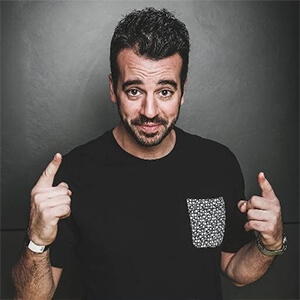


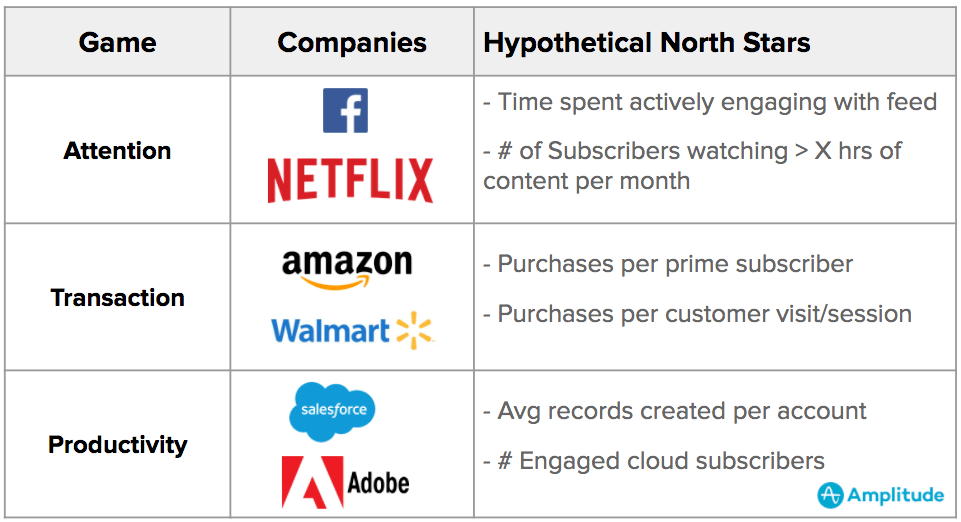
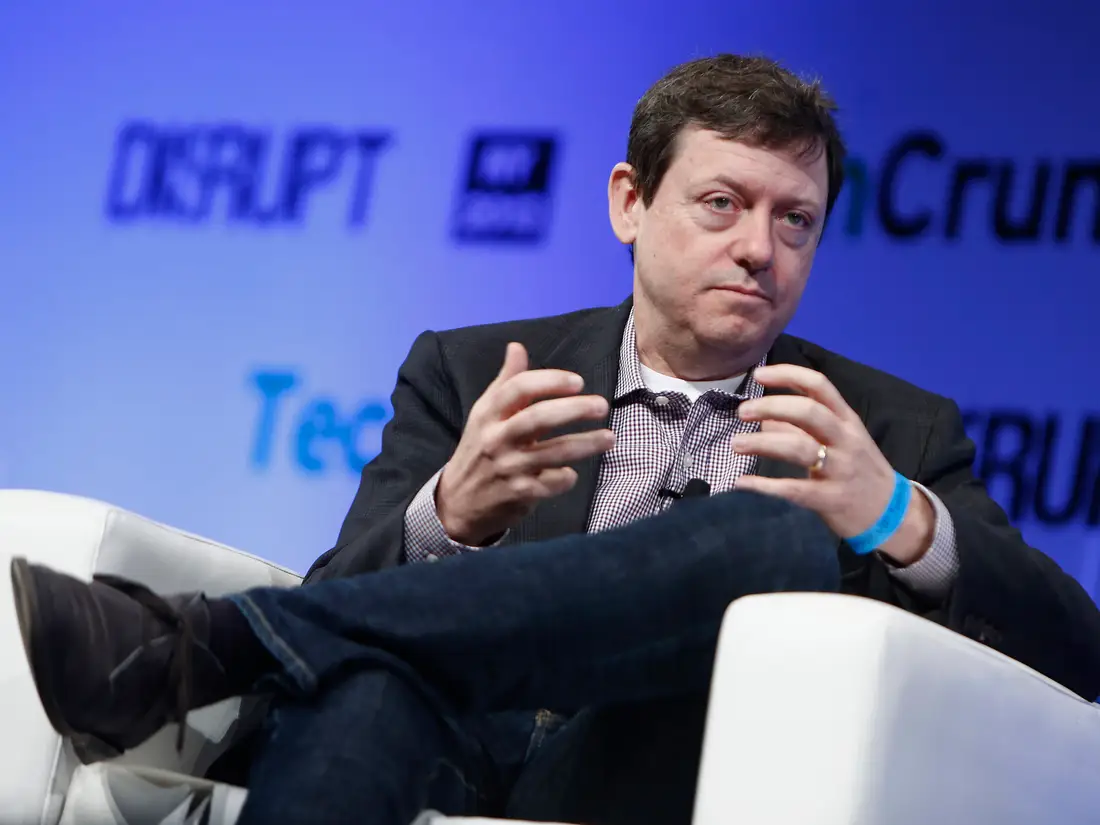




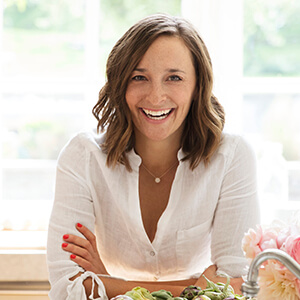
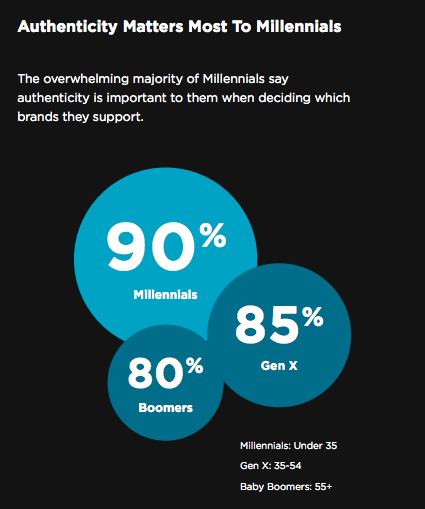








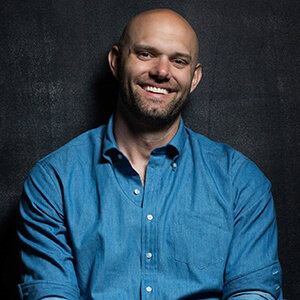










Thank you very much for these inspirational quotes
This is a well informative and interesting post Rob. Wish to find some more again on your blog. Thanks for the post
I’ll be here! 🙂
🙏
Here’s one I love: “You always pass failure on the way to success.”
Love this! 🙏
Nice post! Would love to see better representation in the headshots you’ve chosen to feature in this post. I see 18 headshots – 15 white men / 3 women, and only 2 people of color (both Asian).
Michelle! THANK YOU for such a great critique—unfortunately one of the things that can sometimes happen when I have a freelance writer compile the majority of the “meat” of a post and I hit publish in a hurry this week. But I SO greatly appreciate you for calling this out and I just popped back in to add some more diverse head shots 🙏
Thanks for these eye-opening quotes.
Of course! You’re welcome 🙂
All the top voices in the blogging Industry…
This surely will help new and advanced bloggers to do better at optimising their content to next level.
For me, I like the fact of putting oneself out of the comfort zones cause that’s where great things are achieved. Anyone who sends cold emails know this better – Nathan Barry
Thanks for the Round Up sir.
Cheers.
Agreed! I love that advice too, thanks for weighing in Isuamfon 🙏
Wow! what a great compilation of blogging advice, Ryan. Especially, I loved Shaner Barker’s and yours. To grow a successful blog, it is important that you always reinvent yourself and your blog. Things may not work as we expect for the first, second, and maybe for the next 1000 times but it definitely works after some point in time depending on the efforts we put. The key is to constantly push ourselves to our max limits and find ways to win, even if it is small. Combined, these wins lead to big successes.
Blogging is open-ended learning. Thanks for coming up with this, Ryan.
Yes, absolutely! Thanks for weighing in too, Mudassir. Reinvention is always the name of the game… even once you find something that “works” well for your blog, new tactics or hurdles come along that require you to continue growing, experimenting and trying new things 😅
Thank you for these tips
You’re welcome, Modan! Good luck with your blog 🙂
Thank you very much for these motivational quotes
You got it!
i want to say thank you for all this valuable information.
You’re welcome, Imene 🙂
Wow great content, great knowledge and great templates to start and learn from. Thank you for sharing.